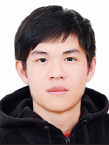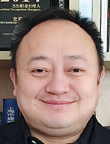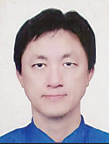Xi-Ma meeting through the eyes of common people

Hsieh Chinchung, 20, junior at Sun Yatsen University in Guangzhou, Guangdong province, from Yunlin county in western Taiwan
My mother is from Tianjin. So I've been visiting the mainland frequently since young.My family members began to settle in the mainland when I was in junior middle school. I met most of my Taiwan friends in the mainland. Now I think of myself as a local resident in Guangzhou. I like local cuisine and I can speak local Cantonese. I think it's good to maintain the status quo between the mainland and Taiwan.


Chang Yichen, 22, graduate student at Peking University in Beijing, from Kaohsiung
I've been in Beijing for two months. I received my bachelor's degree in law from Taiwan's Chengchi University. I chose to study for amaster's degree at a mainland university because I wanted to know more about the mainland. I'm still getting used to a spects such as the food and air, but the e-commerce industry is making life more convenient. I hope the separation issue is solved as soon as possible. Only a united country can stand out fromg lobal competition. There is no doubt that Taiwan and the mainland need each other. Taiwan has wasted too much social resources on the disputes.

Thomas Jen, 50, businessman in Shanghai, from Taipei

I have invested in many industries in Guangdong province and Shanghai since 2000. I also teach at universities. Before 2000, I stayed in the US for six years. All I heard there was about the opportunities in the mainland, so Iw anted to give it a try. Back then,many Taiwan entrepreneurs had concerns about investing in the mainland, basically about policy limitations and political risk. In 2000,many Taiwan-funded companies were still involved in labor-intensive industries. After 2005,more companies have been linked to high technology and innovation. After 15 years, I treat myself as a mainland resident instead of a Taiwan one. I can sense the friendlier attitude toward us in recent years. In 2000, we were treated as Taiwan people in the mainland, and as a mainland person in Taiwan, which was very awkward. For people like me, the top concern is whether peaceful relations can continue between the mainland and Taiwan.

 Hsieh Huaning, 50, general manager of a company based in Suzhou, Jiangsu province, from New Taipei City
Hsieh Huaning, 50, general manager of a company based in Suzhou, Jiangsu province, from New Taipei City
I began to settle in Suzhou last June. Before that, I only had work experience in Taiwan. I chose Suzhou because I used to have a factory there. In the past 10 to 20 years, I've traveled across the Taiwan Straits many times. My parents are among the group of people who fled to Taiwan in 1949, so we pay great attention to peaceful progress. As an entrepreneur and ordinary person, I'd like to see peace and stability between the mainland and Taiwan.

 David Gosset, global affairs specialist and founder of the Euro-China Forum
David Gosset, global affairs specialist and founder of the Euro-China Forum
Some will say that Ma Ying-jeou is at the end of his mandate but the two leaders'meeting signals to the world that the Chinese mainland and Taiwan are moving to ward more coordination, convergence and as such are contributors of peace and prosperity in the region. In this context and at this stage, what really matters is the very fact that direct conversation takes place; the outcome is secondary. Nov 7, 2015 will be a date remembered by the Chinese people all over the world.


















